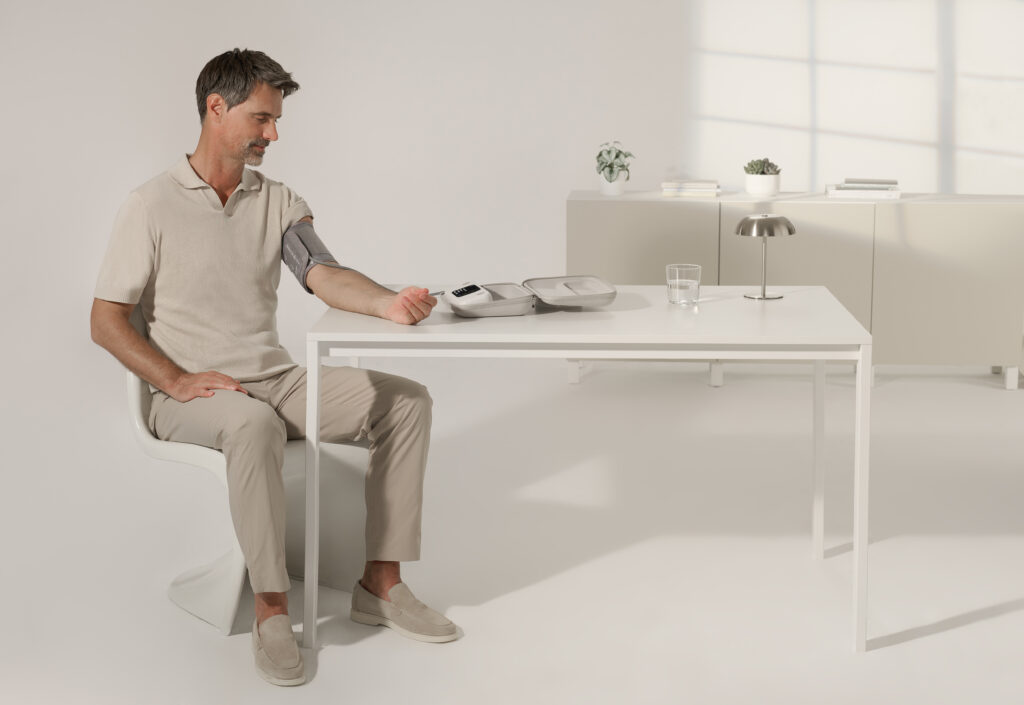Takeaways from our Webinar: Converging Insights on Remote Patient Monitoring

World Sleep Day, the annual spotlight on sleep health that promotes education, research and patient care, is being held on March 14. Withings is marking the occasion by highlighting the extensive technology development and research the company is doing to promote better sleep and more accessible sleep diagnostics.
Major Advances in Sleep Health Technology Mark World Sleep Day

World Sleep Day, the annual spotlight on sleep health that promotes education, research and patient care, is being held on March 14. Withings is marking the occasion by highlighting the extensive technology development and research the company is doing to promote better sleep and more accessible sleep diagnostics.
Withings Sleep Rx: Allowing Sleep Specialists to Make House Calls

New large-scale, longitudinal studies show that monitoring sleep for at least 14 nights at home with a connected sleep tracking mat, can reduce the 30% high error rate of sleep apnea diagnosis from the usual single-night, in hospital polysomnography (PSG) technique. This technology can identify which patients most need expensive, intrusive, and difficult to access PSG. Longitudinal data also detects variability of Obstructive Sleep Apnea from night to night which is associated with hypertension
A Single-Night Sleep Study Can Misdiagnose Sleep Apnea Up to Half the Time

New large-scale, longitudinal studies show that monitoring sleep for at least 14 nights at home with a connected sleep tracking mat, can reduce the 30% high error rate of sleep apnea diagnosis from the usual single-night, in hospital polysomnography (PSG) technique. This technology can identify which patients most need expensive, intrusive, and difficult to access PSG. Longitudinal data also detects variability of Obstructive Sleep Apnea from night to night which is associated with hypertension
Withings 2024 Year in Review: Research Highlights

2024 was an exciting year for Withings. We’re honored that the global research community is increasingly turning to our solutions for studies across an impressive number of therapeutic areas. Among them are diabetic neuropathy, retinopathy, sudomotor function, hypertension, sleep quality, sleep apnea, dementia, ECG intervals in children, arrhythmias, cardiovascular autonomic neuropathy (CAN), public health monitoring, and health technology adoption.
Sleep Apnea Data from Multiple Nights is Key to Predicting Hypertension and Cardiovascular Risk

New large-scale, longitudinal studies show that monitoring sleep for at least 14 nights at home with a connected sleep tracking mat, can reduce the 30% high error rate of sleep apnea diagnosis from the usual single-night, in hospital polysomnography (PSG) technique. This technology can identify which patients most need expensive, intrusive, and difficult to access PSG. Longitudinal data also detects variability of Obstructive Sleep Apnea from night to night which is associated with hypertension
Amélioration de l’adhésion du traitement de l’apnée du sommeil – Une collaboration innovante entre Asten Santé & Withings Health Solutions

Asten Santé et Withings Health Solutions se sont associés pour ajouter le Sleep Analyzer Withings à leur programme de suivi personnalisé, offrant aux patients une vision 360 degrés de la qualité de leur sommeil. Asten Santé a constaté une amélioration de l’engagement des patients ainsi que de l’adhésion à leur traitement.
Improving adherence to sleep apnea treatment – An innovative collaboration between Asten Santé and Withings Health Solutions

The partnership between Asten Santé and Withings Health Solutions has been revolutionary in the way we treat sleep apnea. Withings Sleep Analyzer offers in-depth sleep analysis for patients, which helps them understand the importance of their treatment and how to adhere to it. It is a significant advancement in the field of home healthcare.